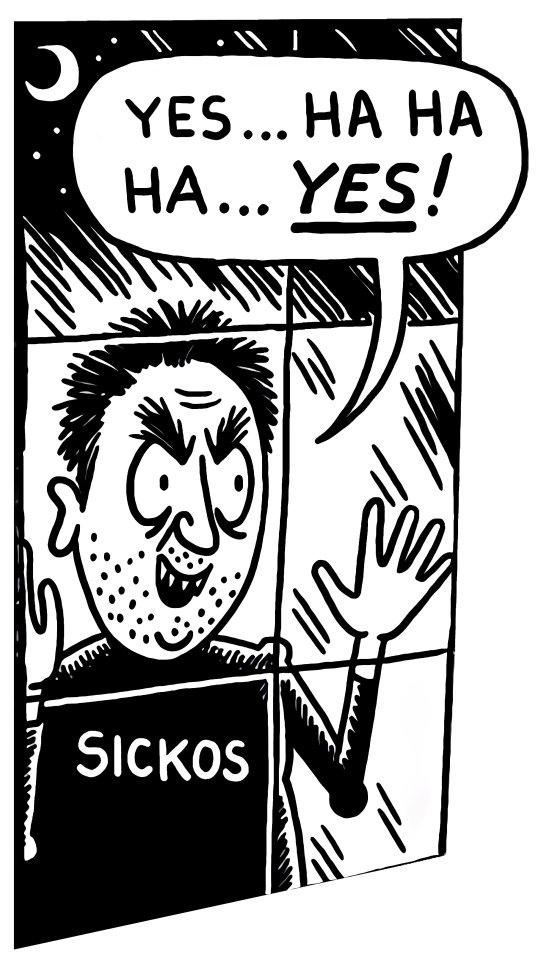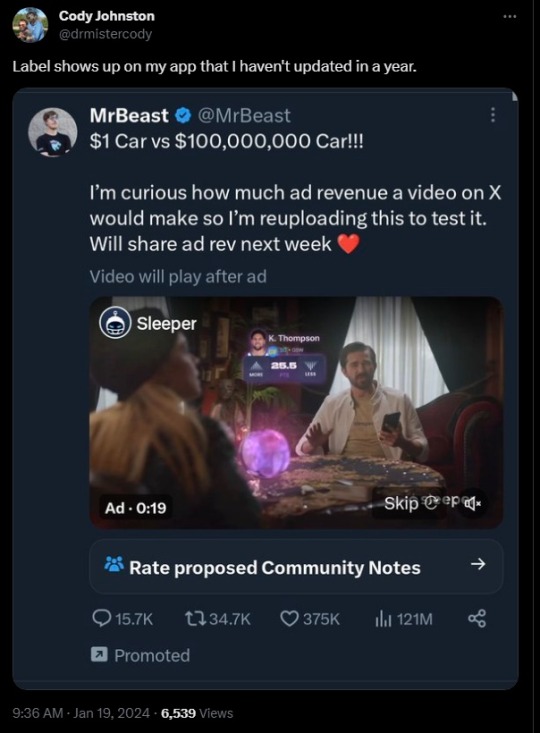#ponzis
Text
When private equity destroys your hospital

I'm on tour with my new novel The Bezzle! Catch me TOMORROW in PHOENIX (Changing Hands, Feb 29) then Tucson (Mar 9-10), San Francisco (Mar 13), and more!

As someone who writes a lot of fiction about corporate crime, I naturally end up spending a lot of time being angry about corporate crime. It's pretty goddamned enraging. But the fiction writer in me is especially upset at how cartoonishly evil the perps are – routinely doing things that I couldn't ever get away with putting in a novel.
Beyond a doubt, the most cartoonishly evil characters are the private equity looters. And the most cartoonishly evil private equity looters are the ones who get involved in health care.
(Buckle up.)
Writing for The American Prospect, Maureen Tcacik details a national scandal: the collapse of PE-backed hospital chain Steward Health, a company that bought and looted hospitals up and down the country, starving them of everything from heart valves to prescription paper, ripping off suppliers, doctors and nurses, and callously exposing patients to deadly risk:
https://prospect.org/health/2024-02-27-scenes-from-bat-cave-steward-health-florida/
Steward occupies a very special place in the private equity looting cycle. Private equity companies arrange themselves on a continuum of indiscriminate depravity. At the start of the continuum are PE funds that buy productive and useful firms (everything from hospitals to car-washes) using "leveraged buyouts." That means that they borrow money to buy the company and use the company itself as collateral: it's like you getting a bank-loan to buy your neighbor's mortgage out from under them, and using your neighbor's house as collateral for that loan.
Once the buyout is done, the PE fund pays itself a "special dividend" (stealing money the business needs to survive) and then starts charging the business a "management fee" for the PE fund's expertise. To pay for all this, the PE bosses start to hack away at the company. Quality declines. So do wages. Prices go up. The company changes suppliers, opting for cheaper alternatives, often stiffing the old company. There are mass layoffs. The remaining employees end up doing three peoples' jobs, for lower wages, with fewer materials of lower quality.
Eventually, that top-feeding PE company finds a more desperate, more ham-fisted PE company to unload the business onto. That middle-feeding company also does a leveraged buyout, pays itself another special dividend, cuts wages, staffing and quality even further. They switch to even worse suppliers and stiff the last batch. Prices go up even higher.
Then – you guessed it – the middle-feeding PE company finds an even more awful PE bottom-feeder to unload the company onto. That bottom feeder does it all again, without even pretending to leave the business in condition to do its job. The company is a shambling zombie at this point, often producing literal garbage in place of the products that made its reputation. Employees' paychecks bounce, or don't show up at all. The company stops bothering to pay the lawyers that have been fending off its creditors. Those lawyers sue the company, too.
That's the kind of PE company Steward Health was, and, as the name suggests, Steward Health is in the business of stripping away the very last residue of value from community hospitals. As you might imagine, this gets pretty fucking ugly.
Steward owns 32 hospitals up and down the country, though its holdings are dwindling as the company walks away from its debt-burdened holdings, after years of neglect that have rendered them unfit for use as health facilities – or for any other purpose. Tcacik's piece offers a snapshot of one such hospital: Florida's Rockledge Regional Medical Center, just eight miles from Cape Canaveral.
Rockledge is a disaster. The fifth floor was, at one point, home to 5,000 bats.
Five.
Thousand.
Bats.
(Rockledge stiffed the exterminators.)
The bats were just the beginning. One of the internal sewage pipes ruptured. Whole sections of the hospital were literally full of shit, oozing out of the walls and ceiling, slopping over medical equipment.
That's an urgent situation for any hospital, but for Rockledge, it's catastrophic, because Rockledge is a hospital without any hospital supplies. Steward has stiffed the companies that supply "heart valves, urology lasers, Impella catheters, cardiac catheterization balloons, slings for lifting heavier patients, blood and urine test reagents, and most recently, prescription paper." Key medical equipment has been repossessed. So have the Pepsi machines. The hospital cafeteria had its supply of cold cuts repossessed:
https://www.reddit.com/r/massachusetts/comments/1agc1j4/comment/kolicqo/
It's not just Steward's nonpayments that reek of impending doom. Its payments also bear the hallmarks of a scam artist on the brink of blowing off the con. The company recently paid off a vendor with five separate checks for $1m, each drawn on "a random hospital in Utah" (Steward recently walked away from its Utah hospitals; its partners there are suing it for stealing $18m on their way out the door).
This company – which owns 32 hospitals! – has resorted to gambits like sending photos of fake checks to doctors it hasn't paid in months as "proof" that the money was coming (the checks arrived 22 days later).
Steward owes so much money to its employees – $1.66m to just one doctors' group. But the medical staff keep doing their jobs, and are reluctant to speak on the record, thanks to Steward's reputation for vicious retaliation. Those health workers keep showing up to take care of patients, even as the hospital crumbles around them. One clinician told Tcacik: "I watched a bed collapse underneath a [patient] who had just undergone hip surgery."
Rockledge has nine elevators, but only five of them work – the other four have been broken for a year. The hospital's fourth floor has been converted to "a graveyard of broken beds." The sinks are clogged, or filled with foul gunk. There's black mold. Nurses have noted on the maintenance tags that the repair service refuses to attend the hospital until their overdue bills are paid. The fifteen-person on-site maintenance team was cut to just two workers.
Steward is just the latest looting owner of Rockledge. After the Great Financial Crisis, private equity consultants helped sell it to Health Management Associates. The hospital's CEO took home a $10m bonus for that sale and exited; Health Management Associates then quickly became embroiled in a Medicare fraud and kickback scandal. Soon after, Rockledge was passed on to Community Health Systems, who then sold it on to Rockledge.
Steward, meanwhile, was at that time owned by an even bigger private equity giant, Cerberus, which then sold Steward off. That deal was performatively complex and hid all kinds of mischief. Prior to Cerberus's sell-off of Steward, they sold off Steward's real-estate. The buyer was Medical Properties Trust, who gave Cerberus $1.25b for the real-estate: three hospitals in Florida and three more in Ohio. Steward then contracted to operate these hospitals on MPT's behalf, and pay MPT rent for the real-estate.
This complex arrangement was key to siphoning value out of the hospital and to keeping angry creditors at bay – if you can't figure out who owes you money, it's a lot harder to collect on the debt. The scheme was masterminded by Steward founder/CEO Ralph de la Torre. De la Torre is notorious for taking a massive dividend out of the company while it owed $1.4b to its creditors. He bought a $40m yacht with the money.
De la Torre was once feted as a business genius who would "disrupt" healthcare. But as Steward's private jet hops around "Corfu, Santorini, St. Maarten and Antigua"
as its hospitals literally crumble, he's becoming less popular. In Massachusetts, politicians have railed against Steward and de la Torre (Governor Healey wants the company to leave the state "as soon as possible").
Florida, by contrast, is much more friendly to Steward. The state Health and Human Services Committee chair Randy Fine is an ardent admirer of hospital privatization and is currently campaigning to sell off the last community hospital in Brevard County. The state inspectors are likewise remarkably tolerant of Steward's little peccadillos. The quasi-governmental agency that inspects hospitals has awarded this shit-and-bat-filled, elevator-free, understaffed rotting hulk "A" grades for quality.
These inspectors jointly represent a mismatched assortment of private and public agencies, dominated by a nonprofit called Leapfrog, the brainchild of Harvard public-health prof Lucian Leape, who founded it in 2000. Leapfrog likes to tout its "transparent" assessment criteria, and Steward are experts at hitting those criteria, spending the exact minimum to tick every box that Leapfrog inspectors use as proxies for overall quality and safety.
This is a pretty great example of Goodhart's Law: "every measurement eventually becomes a target, whereupon it ceases to be a good measurement":
https://xkcd.com/2899/
But despite Steward's increasingly furious creditors and its decaying facilities, the company remains bullish on its ability to continue operations. Medical Properties Trust – the real estate investment trust that is nominally a separate company from Steward – recently hosted a conference call to reassure Wall Street investors that it would be a going concern. When a Bank of America analyst asked MPT's CFO how this could possibly be, given the facility's dire condition and Steward's degraded state, the CFO blithely assured him that the company would get bailouts: "We own hospitals no one wants to see closed."
That's the thing about PE and health-care. The looters who buy out every health-care facility in a region understand that this makes them too big to fail: no matter how dangerous the companies they drain become, local governments will continue to prop them up. Look at dialysis, a market that's been cornered by private equity rollups. Today, if you need this lifesaving therapy, there's a good chance that every accessible facility is owned by a private equity fund that has fired all its qualified staff and ceased sterilizing its needles. Otherwise healthy people who visit these clinics sometimes die due to operator error. But they chug along, because no dialysis clinics is worse that "dialysis clinics where unqualified sadists sometimes kill you with dirty needles":
https://www.thebignewsletter.com/p/the-dirty-business-of-clean-blood
The bad news is that private equity has thoroughly colonized the entire medical system. They took hospitals, fired the doctors, then took over the doctors' groups that provided outsource staff to the hospital:
https://pluralistic.net/2020/04/04/a-mind-forever-voyaging/#prop-bets
It's illegal for private equity companies to own doctors' practices (doctors have to own these), but they obfuscated the crime with a paper-thin pretext that they got away with despite its obvious bullshittery:
https://pluralistic.net/2020/05/21/profitable-butchers/#looted
The financier who decides whether you live or die depends on an algorithm that literally sets a tolerable level of preventable deaths for the patients trapped in the practice:
https://pluralistic.net/2023/08/05/any-metric-becomes-a-target/#hca
Private equity also took over emergency rooms and boobytrapped them with "surprise billing" – junk fees that ran to thousands of dollars that you had to pay even if the hospital was in network with your insurer. They made billions from this, and spent a many millions from that booty keeping the scam alive with scare ads:
https://pluralistic.net/2020/04/21/all-in-it-together/#doctor-patient-unity
The whole health stack is colonized by private equity-backed monopolies. Even your hospital bed!
https://pluralistic.net/2022/01/05/hillrom/#baxter-international
Then there's residential care. Private equity cornered many regional markets on nursing homes and turned them into slaughterhouses, places where you go to die, not live:
https://pluralistic.net/2021/02/23/acceptable-losses/#disposable-olds
The palliative care sector is also captured by private equity. PE bosses hire vast teams of fast-talking salespeople who con vulnerable older people into entering an end-of-life system before they are ready to die. Thanks to loose regulation, the nation is filled with fake hospices that can rake in millions from Medicare while denying all care to their patients (hospice patients don't get life-extending medication or procedures, by definition):
https://pluralistic.net/2023/04/26/death-panels/#what-the-heck-is-going-on-with-CMS
If you survive this long enough, Medicare eventually tells the hospice that you're clearly not dying and you get kicked off their rolls. Now you have to go through the lengthy bureaucratic nightmare of convincing the system – which was previously informed that you were at death's door – that you are actually viable and need to start getting care again (good luck with that).
If that kills you, guess what? Private equity has rolled up funeral homes up and down the country, and they will scam your survivors just as hard as the medical system that killed you did:
https://pluralistic.net/2022/09/09/high-cost-of-dying/#memento-mori
The PE sector spent more than a trillion dollars over the past decade buying up healthcare companies, and it has trillions more in "dry powder" allocated for further medical acquisitions. Why not? As the CFO of Medical Properties Trust told that Bank of America analyst last week, when you "own hospitals no one wants to see closed." you literally can't fail, no matter how many people you murder.
The PE sector is a reminder that the crimes people commit for money far outstrip the crimes they commit for ideology. Even the most ideological killers are horrified by the murders their profit-motivated colleagues commit.
Last year, Tkacic wrote about the history of IG Farben, the German company that built Monowitz, a private slave-labor camp up the road from Auschwitz to make the materiel it was gouging Hitler's Wehrmacht on:
https://pluralistic.net/2023/06/02/plunderers/#farben
Farben bought the cheapest possible slaves from Auschwitz, preferentially sourcing women and children. These slaves were worked to death at a rate that put Auschwitz's wholesale murder in the shade. Farben's slaves died an average of just three months after starting work at Monowitz. The situation was so abominable, so unconscionable, that the SS officers who provided outsource guard-labor to Monowitz actually wrote to Berlin to complain about the cruelty.
The Nuremberg trials are famous for the Nazi officers who insisted that they were "just following order" but were nonetheless executed for their crimes. 24 Farben executives were also tried at Nuremberg, where they offered a very different defense: "We had a fiduciary duty to our shareholders to maximize our profits." 19 of the 24 were acquitted on that basis.
PE is committed to an ideology that is far worse than any form of racial animus or other bias. As a sector, it is committed to profit above all other values. As a result, its brutality knows no bounds, no decency, no compassion. Even the worst crimes we commit for hate are nothing compared to the crimes we commit for greed.

If you'd like an essay-formatted version of this post to read or share, here's a link to it on pluralistic.net, my surveillance-free, ad-free, tracker-free blog:
https://pluralistic.net/2024/02/28/5000-bats/retaliation#charnel-house
#pluralistic#Rockledge Regional Medical Center#private equity#looting#Steward Health#ponzis#maureen tcacik#Medical Properties Trust#Ralph de la Torre#Massachusetts#florida#Cerberus#too big to fail#pe#guillotine watch
341 notes
·
View notes
Text
ponzi and. kuunya....................................


#sillydoods#yandere oc#kuuya posting#noel posting#ponzi posting (?)#hes soggy..............................
460 notes
·
View notes
Text
Look, I've made clear I'm not a fan before, but T***** S**** is just a self centered narcissist with a victim complex. Running to do a photo op after the fact means nothing, that Celine interaction was nasty and classless and I wish she'd just go away from the limelight for a few years again.
Fucking 'tortured'... You're a privileged billionaire who's addicted to attention 🙄
#anti taylor swift#The grammys is about celebrating music and she has to try and make it so everyone's talking about her constantly#The amount of releases she makes is becoming like a ponzi scheme rather than a music career...
182 notes
·
View notes
Text


Azula’s grooming service is very exclusive but worth every penny
#ibizan hound#podenco ibicenco#punchie pie#zuzabee#exclusive meaning reserved specifically for Ponzi and ponzi’s mom Evie#azula doesn’t groom any of the other dogs#ponzi pesters her into a face cleaning at least once a day
163 notes
·
View notes
Note
what's the restaurant in the dunmeshi restaurant au called?
okay, incredibly cheesy and definitely low hanging fruit but it's called The Red Dragon. when I was coming up with the au I initially thought it'd be a ramen shop but like, ultimately I think it'd be funnier if it were a premium casual sorta place that none of them are qualified to work at.
#asks#thank you for the ask!#dunmeshi restaurant au#like. the management is desperate enough that hey keep hiring everyone on referal#meaning the cast just keeps referring eachother like its a ponzi scheme
133 notes
·
View notes
Video
youtube
Is Crypto Really Going To Crash? (Yes)
Crypto is going to crash and could take your savings with it.
In June 2022, Bitcoin dropped over 30 percent to its lowest values since December 2020, and Ethereum, the second-most valuable cryptocurrency, fell about 35 percent. TerraUSD, a so-called “stablecoin,” also collapsed when its underlying cryptocurrency LUNA lost 97 percent of its value in just 24 hours, apparently destroying some investors’ life savings. The implosion helped trigger a crypto meltdown that erased $300 billion in value across the market.
As cryptocurrency prices plummeted, Celsius Network — an experimental cryptocurrency lender — announced it was freezing withdrawals “due to extreme market conditions.”
These crypto crashes and freezes have fueled worries that the complex crypto banking and lending system is on the brink of ruin.
But this crash shouldn’t surprise anyone familiar with the industry – or anyone who remembers the financial crashes of 1929 and 2008.
Let me explain.
In the murky world of crypto decentralized finance, known as DeFi, it’s hard to understand who provides money for loans, where the money flows, or how easy it is to trigger currency meltdowns.
There are no standards for issues of custody, risk management, or capital reserves. There are no transparency requirements. Investors often don’t know how their money is being handled. Deposits are not insured.
It’s a Ponzi scheme. Like all Ponzi schemes, getting rich depends on how many other investors follow you into it – until somebody’s left holding the worthless crypto coin.
Why isn’t this market regulated? Follow the money.
The crypto industry is pouring huge amounts into political campaigns. It has hired scores of former government officials and regulators to lobby on its behalf — including three former chairs of the Securities and Exchange Commission, three former chairs of the Commodity Futures Trading Commission, three former U.S. senators, and even former Treasury Secretary Larry Summers.
In the past, cryptocurrencies kept rising by attracting new investors and big Wall Street money, along with celebrity endorsements. But all Ponzi schemes topple eventually – just like the Wild West finances of the 1920s did.
Back then, Americans had been getting rich by speculating on shares of stock, as other investors followed them into these risky assets — pushing their values ever upwards. When the toppling occurred in 1929, it plunged the nation and the world into the Great Depression.
That crash resulted in the Glass-Steagall Act, signed into law by Franklin D. Roosevelt in 1933. Glass-Steagall separated commercial banking from investment banking, putting an end to the giant Ponzi scheme that had overtaken the American economy and led to the Great Crash of 1929.
It took a full generation to forget that crash and allow the forces that caused it to repeat their havoc.
By the mid-1980s, as the stock market soared, speculators noticed they could make even more money if they gambled with other people’s money, as speculators did in the 1920s. They pushed Congress to deregulate Wall Street, arguing that the United States financial sector would otherwise lose its competitive standing internationally.
The final blow was in 1999, when the Clinton administration succumbed to intensive lobbying and ditched what remained of Glass-Steagall. With its repeal, American finance once again became a betting parlor.
Inevitably, Wall Street suffered another near-death experience when its Ponzi schemes began toppling in 2008, just as they had in 1929. While the U.S. government bailed out the biggest banks and financial institutions, millions of Americans lost their jobs, their savings, and their homes – but only a single banking executive went to jail. In the wake of the 2008 financial crisis, a new but watered-down version of Glass-Steagall was enacted — the Dodd-Frank Act.
Which brings us — nearly a century after Glass-Steagall — to today’s crypto crash.
If we should have learned anything from the crashes of 1929 and 2008, it’s that regulation of financial markets is essential. Otherwise they turn into Ponzi schemes — leaving small investors with nothing and endangering the entire economy.
It’s time for the Biden administration and Congress to end the crypto Ponzi scheme.
In the meantime, share this video so your friends and family don’t fall for it.
2K notes
·
View notes
Text


#wheel of time#wot on prime#wot spoilers#moghedien#the forsaken#she's free and ready to reintroduce ponzi schemes to the wetlands
136 notes
·
View notes
Text


People are pointing out that it appears someone is juicing the views anyway, by promoting the video post as an ad… but without the (required by law) disclosure that it’s an ad. This certainly suggests that it’s being done by ExTwitter itself, rather than MrBeast directly. If it were being done by MrBeast or someone else, then it would say that it was a promoted/advertised slot. The fact that it’s hidden suggests the call is coming from inside the house.
The evidence that it’s an undisclosed ad is pretty strong. People are seeing it show up in their feeds without the time/date of the post, which is something that only happens with ads. Other tweets show that info.

Even stronger proof? If you click on the three dots next to the tweet… it says “Report ad” and “Why this ad?” which, um, is pretty damning.

Cody Johnston notes that he has refused to update his Twitter app in ages, and on the old app, it is properly designated as a “Promoted” tweet, which is how ads were normally disclosed.

Elon is denying that he’s done anything to goose the numbers, but the evidence suggests someone at the company is doing so, whether or not Elon knows about it.

Of course, the evidence still suggests otherwise. Meanwhile, Ryan Broderick was told by an ExTwitter employee that they don’t have to label promoted tweets that have videos because there’s also a pre-roll video and that is disclosed. Of course, that… makes no sense at all. Those are two totally separate things, and not labeling the promoted tweet is a likely FTC violation (and potentially fraudulent in misrepresenting to people how much they might make from videos posted to the platform).
(continue reading)
#politics#twitter#elon musk#mr beast#ftc#ftc violations#ponzy schemes#undisclosed ads#technology#paid ads#mr. beast#ad revenue#tech#promoted ads#techno grifters#crypto bros#mrbeast#twitter monetization#truth in advertising#twitter creator system#eugenics musk#apartheid clyde
50 notes
·
View notes
Text
I was convinced by a fifteen-year old to be his partner for a Ponzi scheme and Alex Jones exposed me on his podcast.
256 notes
·
View notes
Quote
It’s jarring to read a story about a neighbor calling the police on a nine-year-old Black girl spraying for invasive lanternflies, describing the girl to a dispatcher as a “little Black woman walking, spraying stuff”, and then switch over to another tab with a story on the 30-year old “crypto kid” who might’ve just made an oopsie with billions of dollars of customer funds. On one hand, literal children are portrayed in the media as adults, and treated as such in the prison system; on the other, a man who’s been old enough to vote for over a decade is being described as “a young man in need of both defense and a friend” offering refreshments to a reporter “as if we were there for a playdate”.
Sam Bankman-Fried is not a child, Molly White
3K notes
·
View notes
Note
For Noel's cat's name I tjink it would be funny if he meant to name the cat "ponzu" as in "ponzu sauce" but misremembered how ponzu was spelt/pronounced, which is embarrassing and now he has to live with it forever. No one can know this, so he's just like "yeah I named my cat Ponzi as in Ponzi Scheme, totally on purpose, yeah." If anyone finds out the truth he's just gonna have to kill them lol
nonnie you're a genius. Ive thought about naming the cat something like "peaches" because Noel found him abandoned in a cardboard box for peaches (and also because he's pink). I've decided now that ponzi is in fact found in a cardboard box meant for ponzu sauce.

behold. the man of the hour, the master of sauce, the scammer of schemes. ponzi.
237 notes
·
View notes
Text
One of my special talents is being able to immediately guess an MLP episode from a single vague synopsis
#'Oh whats that one where there's the ponzi scheme?' Season 4 Episode 20 Leap of Faith.#Rosie rambles
12 notes
·
View notes
Text









It’s almost pumpkin time again
#ibizan hound#podenco ibicenco#punchie pie#ft sammy#last years pumpkin pics with baby Ponzi and Sam#gonna do this again with spork too#Azula and tansy were not interested in the pumpkins#but Ponzi carried hers around for days
74 notes
·
View notes
Text
On one hand the fact that Myrtle ran out and was hit by the car because she thought Gatsby was Tom and needed to talk to him is really tragic.
On the other hand, it’s much funnier to imagine that while this is happening, Daisy’s thinking “oh fuck another insurance fraud bitch” and then speeds up to commit purposeful vehicular manslaughter.
#did this exist in the 20s? no clue!#i mean this is when Ponzi schemes started#people are devious and stuff#the great gatsby#myrtle wilson#daisy buchanan
18 notes
·
View notes
Text

Emiliano Ponzi
A search for the soul of Naples
13 notes
·
View notes
